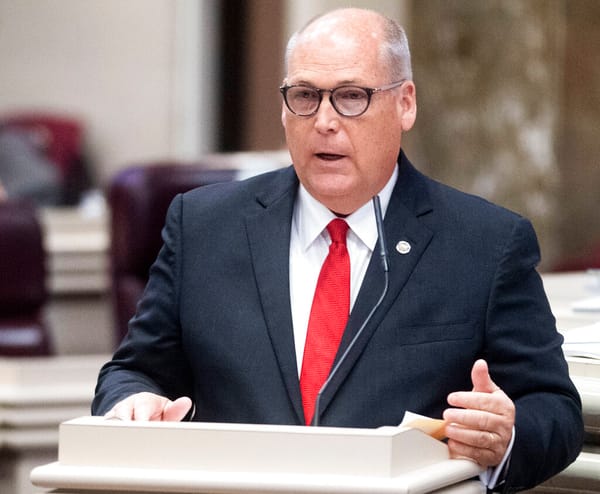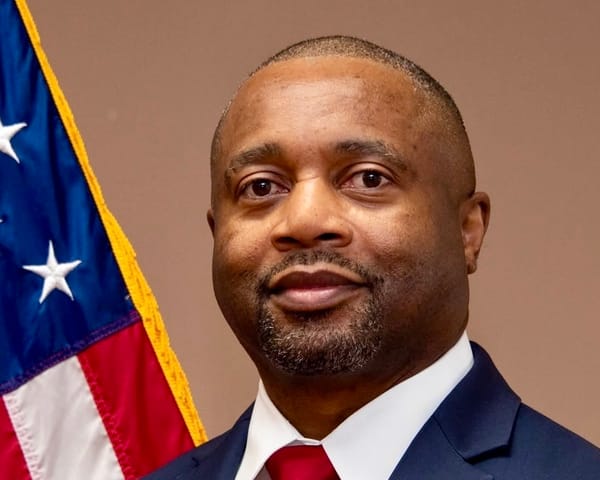Alabama Lawmakers Butler, Harrison & Gidley Pre-file Bill to Bar Pronouns, Gender Identity Discussions in Classrooms
“If we can get everybody back focused on the academics, then I think we’ll have a much better environment. Just leave the sexualization of our children alone”—Mack Butler

Alabama lawmakers have pre-filed a bill aimed at banning discussions of gender identity in public school classrooms. The proposal also prohibits teachers and staff from using pronouns that don’t match a student’s biological sex, or displaying LGBTQ+ flags.
The bill, House Bill 23 (HB23) is sponsored by State Representative Mack Butler (R-Rainbow City), along with co-sponsors Reps. Ben Harrison (R-Athens) and Mark Gidley (R-Hokes Bluff).
HB23 expands Alabama Act 2022-290, which restricted such discussions in the lower elementary grades, K-5th grade. HB23 would extend the ban on classroom discussions “related to gender, identity or sexual orientation” through the 12th grade at public schools. HB23 would also prohibit school employees from displaying “a flag or other insignia relating to or representing sexual orientation or gender identity in a classroom” or on school property.
HB23 additionally prohibits school employees from addressing a student by a pronoun or title that is inconsistent with the student’s biological sex at birth.
Rep. Mack Butler, who filed the bill, said these topics don’t belong in academic settings.
“This just keeps it out of the classroom,” Butler stated. “If a student needs to talk to the teacher or counselor, they absolutely can do this. This is focused on the school itself to keep the curriculum clean.”
He emphasized that students would still have access to private support—just not in the classroom setting.
Butler added that the bill responds to inappropriate assignments he says were given in some classrooms. He urged schools to shift focus back to core academics:
“If we can get everybody back focused on the academics, then I think we’ll have a much better environment. Just leave the sexualization of our children alone.”
Butler also told ALPolitics.com that with HB23 “we are trying to mirror the White House directive,” referring to President Trump’s January 29. 2025 Executive Order “Ending Radical Indoctrination in K-12 Schooling.”
Butler sponsored a similar measure in the past legislative session, which failed to pass the Senate.
Alyx Kim-Yohn from the Alabama Transgender Rights Action Coalition warned the bill singles out transgender and LGBTQ+ youth.
“It’s heartbreaking to see,” Kim-Yohn said. “Teenagers are already under so much pressure … and also cannot be their true, authentic selves, or even have the freedom to explore if their true, authentic selves, which could be trans or gender nonconforming.”
No one doubts that LGBTQ+ teenagers are subject to intense pressures, much more so than their cis-heterosexual counterparts. However, critics of legislation such as HB23 often fail to take into account recent studies, most notably 2024’s Independent Review of Gender Identity Services for Children and Young People (aka the Cass Review), which concluded that the evidence and data supporting gender-altering treatments is “remarkably weak.” The spontaneous rate of resolution of gender dysphoria/confusion is also quite high, and there is a significant likelihood that gender dysphoria is indeed a socially contagious condition. These and other factors, as ALPolitics.com has previously reported, could combine to create “a perfect storm environment for the placebo effect” which the restrictions of HB23 would likely reduce.
Additionally, HB23 only applies to public schools, and gender dysphoric/nonconforming students in Alabama are no longer bound to the public school system for their education. Homeschooling, assisted by the CHOOSE Act or otherwise, is always an option. Also, Alabama’s Magic City Acceptance Academy is available for LGBTQ+ teens in grades 6–12 who are experiencing difficulties in less welcoming environments.
In the 2025 session, a similar bill, House Bill 246 (the “Pronoun Bill” or “Free to Speak Act”), HB246, was introduced. HB246 would have blocked the use of names or pronouns not aligned with a student’s legal name or biological sex—unless the school had explicit written permission from a parent or guardian. It also would have protected educators who refuse to use a student's preferred pronouns from facing consequences and allows legal action if the law is violated. HB246 received a favorable report out of committee but was indefinitely postponed and did not receive a vote on the floor of the House. At press time, there was no record on ALISON that Rep. Scott Stadhagan (R-Hartselle) has pre-filed another version of HB246 for the 2026 session.
HB23 and similar bills are part of a wave of education-related legislation across the U.S. focused on curbing classroom discussions of sexual orientation and gender identity. Alabama has previously enacted laws that ban DEI programs and mandate bathroom use based on biological sex—rules critics say discriminate against LGBTQ+ individuals, but that supporters represent only common sense, decency, and a desire to protect Alabama’s children.
The text of HB23 is available HERE.




